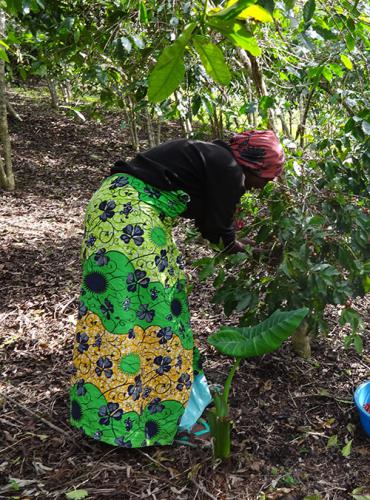Gender
 Overcoming gender biases requires attention to constraints in equitable provision of services and equitable access to socio-economic opportunities, including key resources needed for food production, processing and marketing. FSP builds on past and on-going support to national agricultural and food policy systems in understanding and utilizing tools that remove gender-related barriers in agriculture and strengthen women’s engagement in five domains:
Overcoming gender biases requires attention to constraints in equitable provision of services and equitable access to socio-economic opportunities, including key resources needed for food production, processing and marketing. FSP builds on past and on-going support to national agricultural and food policy systems in understanding and utilizing tools that remove gender-related barriers in agriculture and strengthen women’s engagement in five domains:
- decisions about agricultural value chain related activities
- access to and decision-making power over productive resources,
- control over use of income,
- leadership in the community, and
- time use.
There is a vital need to conduct more empirical analysis to better understand the policy interventions needed and where and how to implement them to ensure greater gender equity. The collection of more gender-sensitive data helps strengthen analytical capacity, which in turn is likely to lead to gender mainstreaming. FSP informs development partners and policy-makers about inequalities in gender-resource access and decision-making as well as about impacts of past interventions on women’s empowerment, food security and agricultural productivity.
Improving networking between women’s groups and other key stakeholders in the policy system facilitates the articulation and shaping of gender-related issues in policies and interventions. Opportunities for greater representation of women’s organizations in both private and public institutions is sought to ensure that women have an equal voice in the decision-making processes. Strengthening research on key gender-related issues, building capacity for gender-responsive public investments, enhancing analytical work carried out by public and private sector stakeholders, and giving a stronger voice to women, are all strategic actions that our team encourages in order to adequately integrate gender into country-level policy agenda.
Recommended policy research brief:
Elizabeth Mkandawire and Sheryl Hendriks. 2017. The Integrated Framework for Gender Analysis of Nutrition Policy. Feed the Future Innovation Lab for Food Security Policy Research Brief 32. East Lansing: Michigan State University
Photo: Woman harvesting coffee in Rwanda (credit: Ruth Ann Church)


